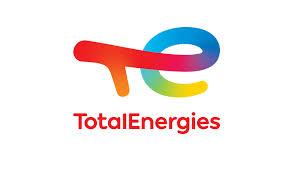The global crude oil market has been rocked by a surge in prices, triggered by relentless attacks on Russian refineries by Ukrainian fighters.
Within just a week, prices of various crude oil benchmarks have skyrocketed, leaving analysts and consumers alike grappling with the consequences.
Join our WhatsApp ChannelAccording to recent data, the Brent Crude, a key benchmark, surged from $82.44 to $86.87 per barrel since March 11. Similarly, the WTI crude witnessed a notable increase from $78.13 to $81.77 per barrel during the same period. The Murban crude, too, saw a significant uptick from $82.78 to $86.90 per barrel.
Nigeria, a prominent player in the oil market, witnessed its Brass River and Qua Iboe crude oils surge to $90.07 per barrel on Monday, up from $84.84 on March 11, according to reports from Oilprice.com.
The driving force behind this sudden price surge appears to be the relentless Ukrainian drone attacks on Russian refineries, severely disrupting fuel output in the world’s largest exporter of oil. A Ukrainian intelligence source revealed to Reuters that 12 Russian oil refineries have been targeted during the ongoing conflict.
READ ALSO: How Nigeria’s Crude Oil Production Slips To 1.419mbpd – OPEC
As a consequence of these developments, the cost of gasoline has surged as well. Just within a week, the price of a gallon of gasoline jumped from $2.580 to $2.759, indicating the ripple effect of the crude oil price surge on consumer pockets.
However, amidst this volatility, there remains uncertainty in the oil market as prices continue to fluctuate. Such unpredictability hints at potential challenges ahead, especially for countries heavily reliant on oil imports.
In Nigeria, where the impact of global oil prices directly affects the cost of petrol, concerns are rising about the potential inflationary pressures.
While the government’s unannounced intervention has managed to keep the pump price of petrol at an average of N600 per litre, the sustained rise in global oil prices may pose challenges to this stability in the near future.
In light of these developments, stakeholders are closely monitoring the situation, with hopes for stability and moderation in crude oil prices, crucial for global economic equilibrium.
Emmanuel Ochayi is a journalist. He is a graduate of the University of Lagos, School of first choice and the nations pride. Emmanuel is keen on exploring writing angles in different areas, including Business, climate change, politics, Education, and others.
- Emmanuel Ochayihttps://www.primebusiness.africa/author/ochayi/
- Emmanuel Ochayihttps://www.primebusiness.africa/author/ochayi/
- Emmanuel Ochayihttps://www.primebusiness.africa/author/ochayi/
- Emmanuel Ochayihttps://www.primebusiness.africa/author/ochayi/


















Follow Us